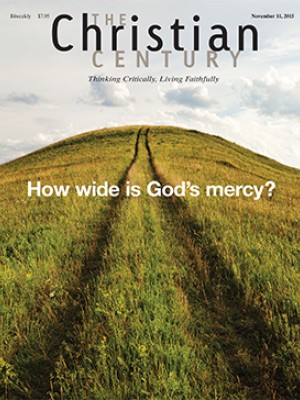Doing one thing well

At a meeting supporting the work of the microcredit organization Opportunity International, I was seated next to a friend who had worked as a top executive with a mainline denomination. After hearing about OI’s impressive array of programs, we noted that it was doing the kind of work that denominations have been doing for years.
But there’s one big and important difference, said my friend. OI can focus all its energy and resources on a single, well-defined mission, while denominations must focus on many different programs and priorities: global mission, church order and discipline, theology, education, leadership training, curriculum, publishing, and ecumenical relations. In the process, declining resources are spread thin. OI does one thing: development. And it does it well.
Read our latest issue or browse back issues.
Last year 12 million people used an OI microloan or through OI established a savings account, purchased insurance, or received training to help break the cycle of poverty. More than $1 billion was loaned to entrepreneurs around the world—90 percent of them women. A food vendor in Colombia received training, updated her kitchen, and improved sales. She hired four neighbors, raising her sales further and making a positive impact on 20 people. That’s efficient development.
Independent, single-purpose organizations have picked up pieces of what the church used to do. Not long ago, for example, a denomination’s national structure included a division for housing. Today Habitat for Humanity, which unapologetically reflects the churches’ mission, works with diverse communities to provide affordable housing.
Maybe Phyllis Tickle was right that this is all about church change, that every 500 years the church has “a giant rummage sale.” Churches are slowly relinquishing responsibility for mission programs that are run more efficiently by other organizations.
This shift offers an opportunity for unchurched people to join in church work. Robert Lupton observes that a strong commitment to helping others is part of our national character. “Ninety percent of American adults are involved personally or financially in the charity industry,” he says.
I serve on the board of Operation Walk Chicago, another effective nonprofit. This medical service organization provides knee and hip replacements to people who cannot otherwise afford this life-changing surgery. (I’ve been a beneficiary of joint replacement surgery and know firsthand how it dramatically improves one’s life.) Teams of Operation Walk volunteer surgeons and other medical personnel, mostly from Northwestern Hospital in Chicago, spend two weeks in a developing nation, performing 30–70 joint replacements and training local surgeons and medical personnel. Teams have traveled to China, India, Vietnam, Ecuador, and Nepal and have initiated programs in underserved areas of Chicago.
Opportunity International and Operation Walk do good work for which people of faith can be deeply grateful.






